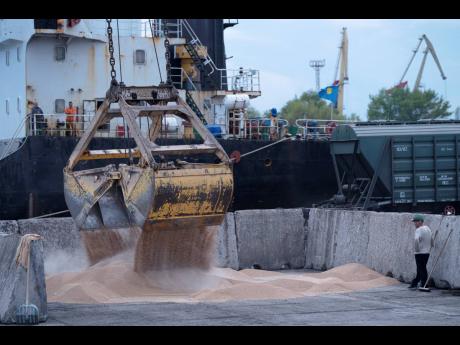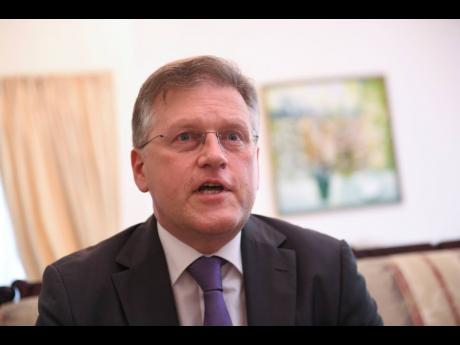Sergey Petrovich | Who is to blame for global economic turmoil?
Recently, it has become customary in the Western media to blame Russia, without any substantiation, for the global economic crisis. This comes against the backdrop of rising prices of food, fertilisers, and energy, as well as disruptions in the international financial system, which are allegedly caused by a special military operation in Ukraine.
Unfortunately, the modern global information agenda is shaped by Western media corporations that serve the interests of select countries. Any alternative perspective that is inconvenient for the West is labelled as “fake news” or “totalitarian propaganda”.
However, unbiased experts working in independent media and reputable international organisations openly and frankly attribute the root causes of the current food and energy crisis primarily to macroeconomic imbalances, systemic errors, and blunders of the largest Western countries, which habitually solve all their problems through uncontrolled monetary emission. The climate disasters, the COVID-19 pandemic, and the accelerated renewable energy transition have further exacerbated these negative trends.
The risk of a global food crisis was already raised by the United Nations in 2020. According to the FAO, the food price index increased by 50 per cent from 2019 to February 2022. The most significant surge in prices for agricultural products was recorded in 2020. That proves the invalidity of assertions that the ongoing Ukrainian crisis - which began in February of last year - supposedly led to inflation in global food markets, with Russia being the main cause of their growing volatility.
On the other hand, it is evident that the imposition of massive illegal unilateral sanctions against Russia, unprecedented in history, has further and seriously unbalanced global markets. This happened when Russia, as one of the largest players in the global food and energy markets, was simply tried to be “shut down” by the global economic system.
Such systemic restrictions have affected all economic operators and have disrupted traditional financial and logistics links and supply chains. As a result, transport channels for the delivery of Russian fertilisers and foods have been blocked, banking institutions have been paralysed, and relevant insurance and reinsurance transactions have became inaccessible. The negative effect of the unilateral sanctions on food security has been acknowledged by a number of international experts, including from the concerned organisations such as the World Bank, WHO, UNICEF, and the UN Economic Commission for Europe. They have noted that artificial restrictions on food, fertiliser, and fuel exports have hiked up food prices in all countries and regions worldwide without exception.
EVADE RESPONSIBILITY
While baselessly accusing Russia of provoking a threat of famine, the Western countries are not only trying to evade responsibility for the destructive impact of their sanctions on the global economy, but also carefully conceal the fact that the main beneficiaries of the rising food and fertiliser prices and the destabilisation of their supplies to global markets are the largest Western agribusiness corporations. Specifically, these include the so-called “Big Four”: the American producers Archer Daniels Midland, Bunge, and Cargill, as well as the Dutch Louis Dreyfus, which account for 75 to 90 per cent of global agricultural trade. In 2022, these companies made record profits, speculating on the artificially induced panic about possible shortages, as well as inflation.
A clear example of the West’s speculation on the interests of developing countries is the implementation of the so-called “grain deal.” This package proposal, put forward by UN Secretary-General António Guterres and signed in Istanbul on July 22, 2022, consists of two interrelated agreements: the “Black Sea Initiative” on the export of Ukrainian food and Russian ammonia; and the Russia-UN Memorandum on the normalisation of Russian agricultural exports. On paper, this “package” was aimed at reducing threats to food security and providing assistance to needy countries in Asia, Africa, and Latin America. In fact, it served as a “cover” for the commercial export of Ukrainian grain to “well-fed” countries, with more superprofits for the mentioned Western corporations.
Since August 2022, a total of over 30.3 million tons of grain has been exported from Ukrainian ports on the Black Sea. The lion’s share of the agricultural products (80 per cent) went to high-income and above-middle-income countries, including the EU (around 40 per cent). The poorest countries such as Ethiopia, Yemen, Afghanistan, Sudan, and Somalia accounted for only 2.5 per cent of the shipments (722,000 tons).
This, however, doesn’t prevent the West from propagating the claims of “Russia using famine as a weapon” and “not imposing Western sanctions on Russian food and fertilisers”. In reality, the West continues to introduce new sanction packages against Russian agricultural exports. As a result, Russian companies are facing multiplying obstacles in banking, insurance, and logistics, as well as the consequences of personal restrictions against the owners of manufacturing companies.
SUFFER SHORTAGE
Moreover, countries in need of Russian fertilisers and food are not only forced to pay for these restrictions, but also suffer from a physical shortage of necessary products. A vivid example of this is the story of the free delivery of Russian fertilisers (262,000 tons) to the poorest countries, which have been stuck in the ports in Latvia, Estonia, Belgium, and the Netherlands. Since September 2022, only one batch of 20,000 tons has reached Malawi, while the second delivery of 34,000 tons is on its way to Kenya, and another 34,000 tons for Nigeria is still waiting for dispatch. And this is despite the fact that it is a purely humanitarian action to which no restrictions should apply in principle, and all shipping and transportation costs are being covered by Russia.
Unfounded accusations of artificially creating an energy crisis are also directed towards Russia. However, the actual basis for the observed crisis phenomena in this field lies in the short-sighted, erroneous, inconsistent macroeconomic and energy policies of Western countries, as well as a politically motivated course to abandon supplies of Russian energy resources.
If we objectively analyse the situation in the global-energy industry, the sharp increase in gas prices happened back in 2021. At that time, prices rose from $200 to $1,950 per cubic metre. The price of oil also increased by one and a half times throughout 2021. This was a result of demand fluctuations due to the COVID-19 pandemic, pumping the economy (primarily the Western one) with “cheap money” to minimise the consequences of coronavirus, and a steep decrease in investments in the oil and gas sector since 2017 influenced by the EU’s accelerated transition to “green energy”.
STRATEGIC MISTAKES
The rise in gas prices in Europe has also been contributed by systemic strategic mistakes of the European Commission, which has been pursuing an irrational policy of abandoning long-term contracts for gas and transitioning to spot ones, inevitably leading to price uncertainty. By mid-2021, Europe has faced a gas shortage. By the end of 2021, European underground gas-storage facilities were only filled on average at 72 per cent. The tension in the European gas market could have been alleviated by the start of deliveries through the “Nord Stream 2” pipeline. However, under pressure from the US and anti-Russian forces in the EU, the pipeline never started operating. In 2022, as we know, a terrorist attack followed, targeting both the “Nord Stream-1” and “Nord Stream-2” pipelines. Currently, our European “partners” demonstrate a complete unwillingness to establish the circumstances of this sabotage, attempting to cover up the traces and the true perpetrators of the crime, while preventing Russian representatives from participating in the investigation.
Moreover, the current illegitimate unilateral restrictions on Russia’s energy sector, associated with the Ukrainian crisis, only exacerbate the situation. In this context, it is impossible to deny the fact that the key factor in maintaining high energy prices is now the successive packages of unilateral sanctions from the West and constant speculation about possible new anti-Russian measures in the energy sphere, which provoke negative expectations in the market. All of this is a direct consequence of the West’s deliberate decision to involve the energy sector in a political confrontation with Russia.
In these circumstances, Russia has always been and remains one of the key suppliers of agricultural products and fossil fuels in the world and continues to fulfil its international obligations responsibly and conscientiously regarding the supply of these and other critical commodities to international markets.
- Sergey Petrovich is the ambassador of the Russian Federation to Jamaica. Send feedback to columns@gleanerjm.com.


